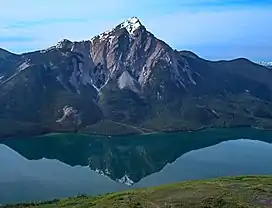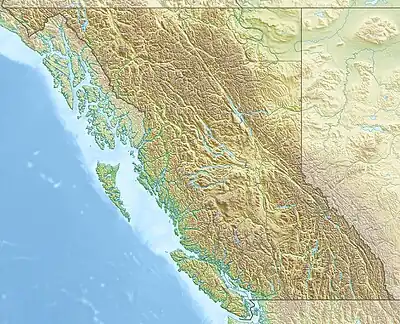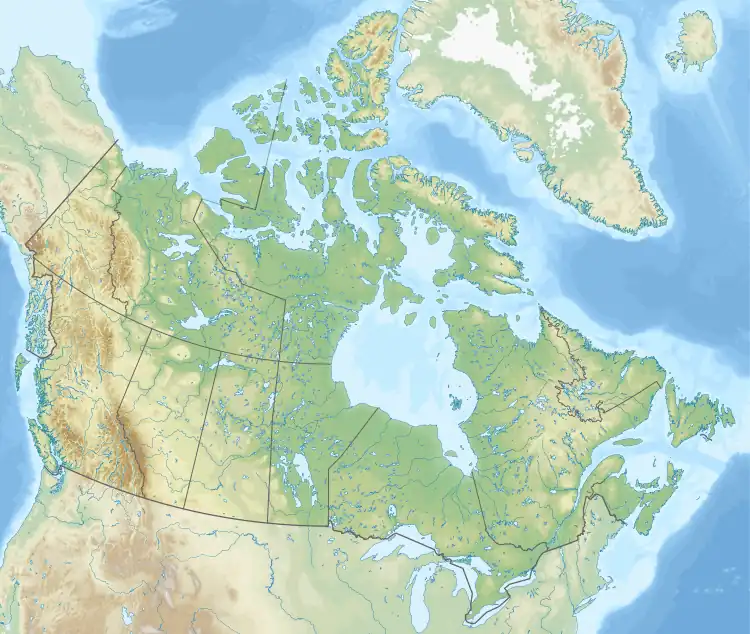Pelly Peak
Pelly Peak, is a 2,048-metre (6,719-foot) mountain summit in the Russel Range of the Omineca Mountains in northern British Columbia, Canada. The mountain is situated west of the head of Finlay Reach of Williston Lake, and a remote 67 km (42 mi) south of Fort Ware in the Cassiar Land District.[3] It rises 1,250 m (4,100 ft) above the south shore of Pelly Lake. Its nearest higher peak is Barrier Peak, 5.0 km (3.1 mi) to the east. Precipitation runoff from the mountain drains into Pelly Creek, a tributary of the Ingenika River. Sir John Pelly (1777–1852) served as Governor of Hudson's Bay Company for three decades, and his name is attached to many geographic features in Canada, including but not limited to Pelly River, Pelly Mountains, Pelly Island, Pelly Bay, Mount Pelly, and Fort Pelly. The peak's name was officially adopted June 4, 1953, by the Geographical Names Board of Canada.[2] Based on the Köppen climate classification, Pelly Peak is located in a subarctic climate zone with cold, snowy winters, and mild summers.[4] Temperatures can drop below −20 °C with wind chill factors below −30 °C.
| Pelly Peak | |
|---|---|
 Pelly Peak reflected in Pelly Lake | |
| Highest point | |
| Elevation | 2,048 m (6,719 ft)[1] |
| Prominence | 592 m (1,942 ft)[1] |
| Parent peak | Barrier Peak (2106 m) |
| Listing | Mountains of British Columbia |
| Coordinates | 56°50′09″N 125°23′04″W[2] |
| Geography | |
 Pelly Peak Location of Pelly Peak in British Columbia  Pelly Peak Pelly Peak (Canada) | |
| Location | British Columbia, Canada |
| District | Cassiar Land District |
| Parent range | Omineca Mountains Russel Range |
| Topo map | NTS 94C14 Ed Bird Creek[2] |
See also
References
- "Pelly Peak". Bivouac.com. Retrieved December 7, 2019.
- "Pelly Peak". Geographical Names Data Base. Natural Resources Canada. Retrieved December 7, 2019.
- "Pelly Peak". BC Geographical Names. Retrieved May 30, 2021.
- Peel, M. C.; Finlayson, B. L. & McMahon, T. A. (2007). "Updated world map of the Köppen−Geiger climate classification". Hydrol. Earth Syst. Sci. 11: 1633–1644. ISSN 1027-5606.
External links
- Weather forecast: Pelly Peak